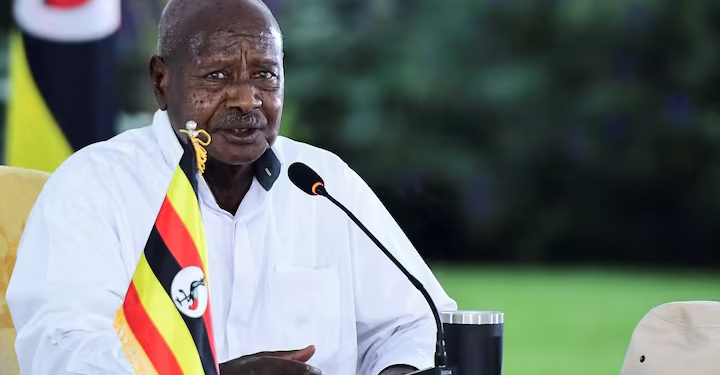Ugandan President Yoweri Museveni has signed into law the Uganda Peoples’ Defence Forces (Amendment) Act, 2025, allowing military tribunals to try civilians under certain circumstances.
The law, passed by parliament last month, has sparked controversy and opposition, with critics arguing it violates a recent Supreme Court ruling that deemed such trials unconstitutional.
The Supreme Court had ruled in January 2025 that military courts lack jurisdiction over civilians, citing constitutional guarantees of a fair hearing.
However, the new law seeks to restore this provision, allowing2 civilians to be tried in military courts for offenses such as unlawful possession of military weapons, espionage, and acts threatening UPDF operations or national security.
Opposition leaders, including Bobi Wine, who is preparing to challenge Museveni in next year’s election, have vowed to challenge the law in court. Wine was once charged in a military tribunal over illegal possession of guns, but the charges were later dropped.
The government’s insistence on the law is aimed at maintaining national security and deterring militant political groups.
Key Concerns:
- Constitutional Rights: Critics argue the law undermines constitutional protections for civilians and disregards the Supreme Court’s judgment.
- National Security: The government insists the law is necessary to maintain national security and deter militant groups.
- Opposition Response: Opposition leaders have vowed to challenge the law in court, citing procedural violations and lack of consultation.









